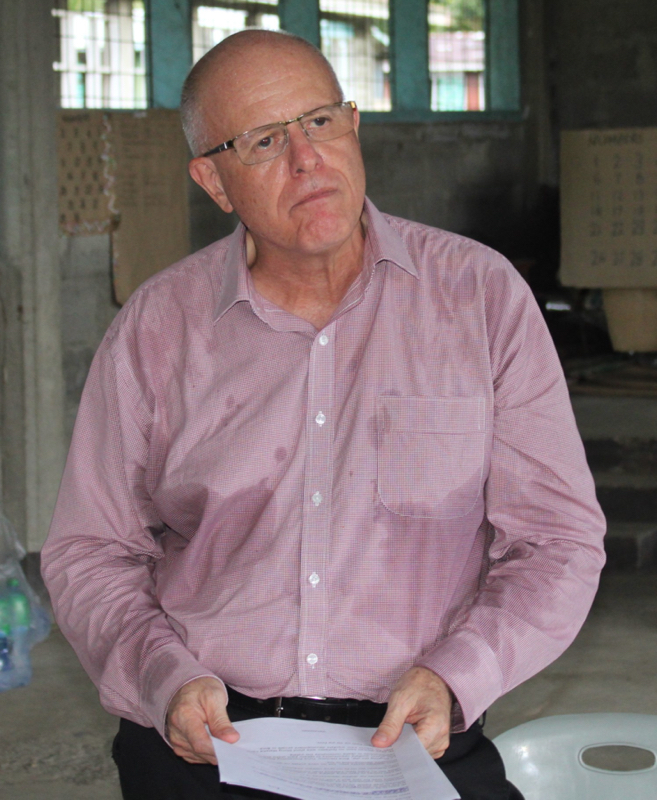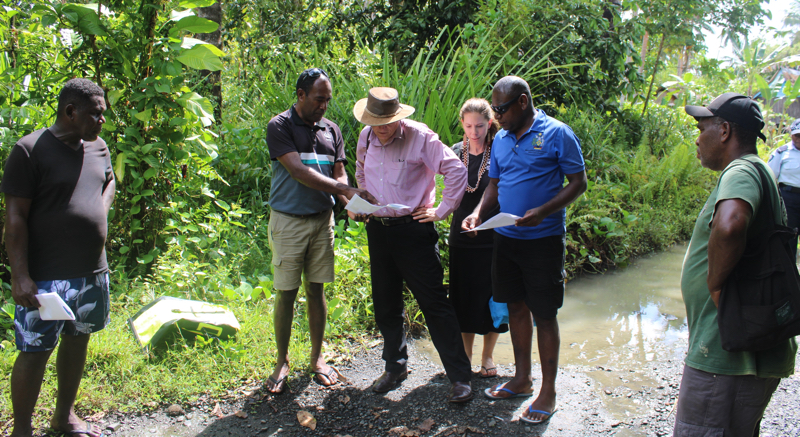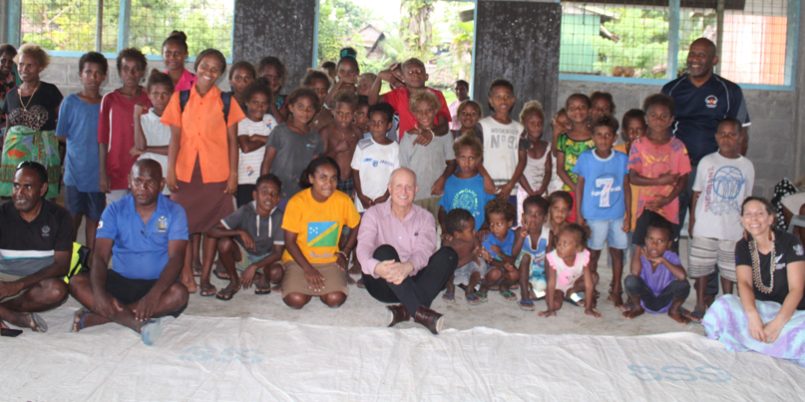A recent visit of the New Zealand High Commissioner to Bina Harbour, Malaita Province has reignited optimism for the Bina Harbour Tuna Processing Plant Project (BHTPP), a crucial initiative intended to transform the economic landscape of Malaita Province.
During the visit, His Excellency Jonathan Schwass and his delegation paid a courtesy call to the Office of the Premier of Malaita Province.
Since the Provincial Premier and senior officials were in Honiara, His Excellency Schwass and his delegation met with the Acting Premier Mr Randol Sifoni and Peter Herehura the Deputy Provincial Secretary of the Malaita Provincial Government (MPG).
The briefing with the MPG centred on New Zealand’s support to the Solomon Islands, including specific assistance to Malaita Province.

Moreover, the conversation touched on the fisheries sector, particularly in relation to Malaita Province.
The discussions were highly constructive, underlining New Zealand’s partnership with the Solomon Islands Government and other key areas which New Zealand has supported such as education, aviation, tourism and others.
The First Secretary of the New Zealand High Commission Ms Marni Gilbert was included in the delegation, accompanied by officers from the Ministry of Fisheries and Marine Resources (MFMR), led by Deputy Secretary Corporate (DSC) Patteson Lusi, along with representatives from the Bina Region Arrangements for Governance (BRAG), the Bina Harbour Project Office, and officers from Auki Police who escorted the party to Bina village.
The high-level delegation was warmly welcomed upon arrival at Bina by the Chairman of the Bina Talifu Trust, Dickson Mae, who expressed the community’s gratitude for New Zealand’s long-term support of the project.

The visit allowed the delegation to assess several critical infrastructure sites, including those earmarked for test pits and boreholes, essential groundwork for geotechnical surveys scheduled for later this month.
At a community meeting in Bina, MFMR’s DSC Patteson Lusi reaffirmed the Ministry’s commitment to the project, noting the significant progress made since 2015 when MFMR was tasked with leading the initiative.
Mr Lusi highlighted the economic potential of the BHTPP, drawing comparisons to the successful cannery operations in Noro, which have generated significant employment and livelihood opportunities.
He emphasised that similar outcomes are expected in Malaita once the tuna processing plant is operational.
Speaking with the local community, the New Zealand High Commissioner voiced his excitement about the project and its far-reaching benefits.
“This is not just a development project—this is a lifeline for the people of Malaita,” he said.
“The Bina Harbour Processing Plant will provide sustainable economic opportunities for this generation and those to come.”

He also noted the importance of BRAG’s role in engaging the local communities, ensuring that they are well-prepared to participate and benefit from the plant’s operations once it is up and running.
The High Commissioner further stressed the necessity of coordinated support from various industries—including transportation, utilities, and food services—to ensure the project’s success.
He assured the community that despite the challenges, New Zealand remains fully committed to the BHTPP and will continue working with the Solomon Islands Government and other partners to bring the project to completion.
“New Zealand has been, and will continue to be, a steadfast partner in this endeavour,” he affirmed.

One of the visit’s key announcements was that an Azimuth survey team will begin site surveys this week, setting the stage for Tonkin & Taylor, a New Zealand engineering firm, to conduct geotechnical activities.
These assessments are crucial to help determine the physical characteristics of the development site.
During the community meeting, Bina village leaders expressed their appreciation for New Zealand’s continuous support.
Mr. Mae, Chairman of the Bina Talifu Trust, said, “We are proud to host this national project, which will not only benefit Malaita but the entire Solomon Islands through job creation and economic development.”

In addressing recent criticisms of the project, Chief James Usi firmly stated, “The Bina project is progressing well, and those who criticise it do not understand the real developments happening here. We are moving forward, and nothing can stop this momentum.”
The High Commissioner’s visit concluded with interactions that included women, local children and students.
The Bina Harbour Tuna Processing Plant is positioned to become a cornerstone of Malaita’s economic future, providing much-needed jobs and infrastructure that will benefit generations.
– BRAG









